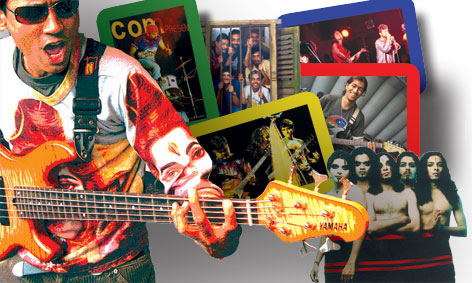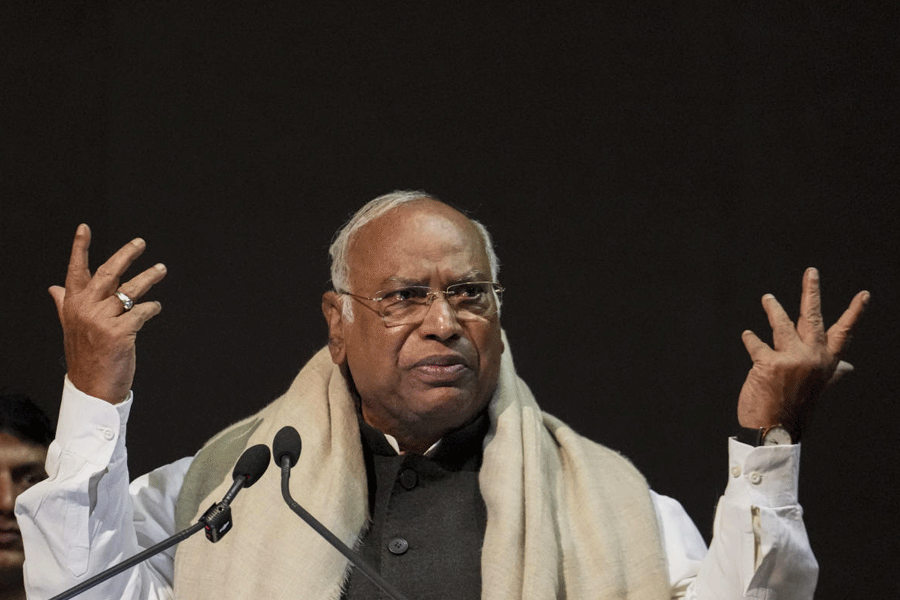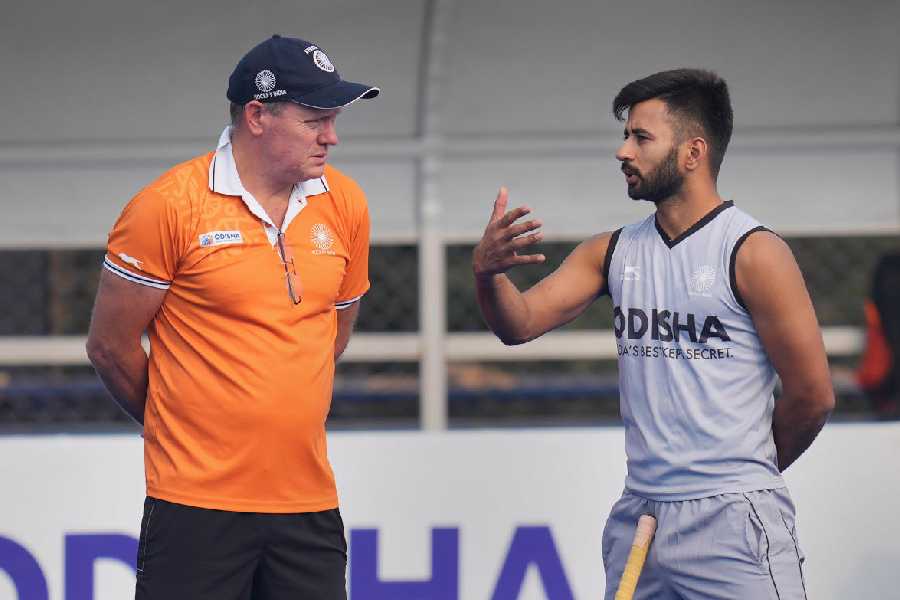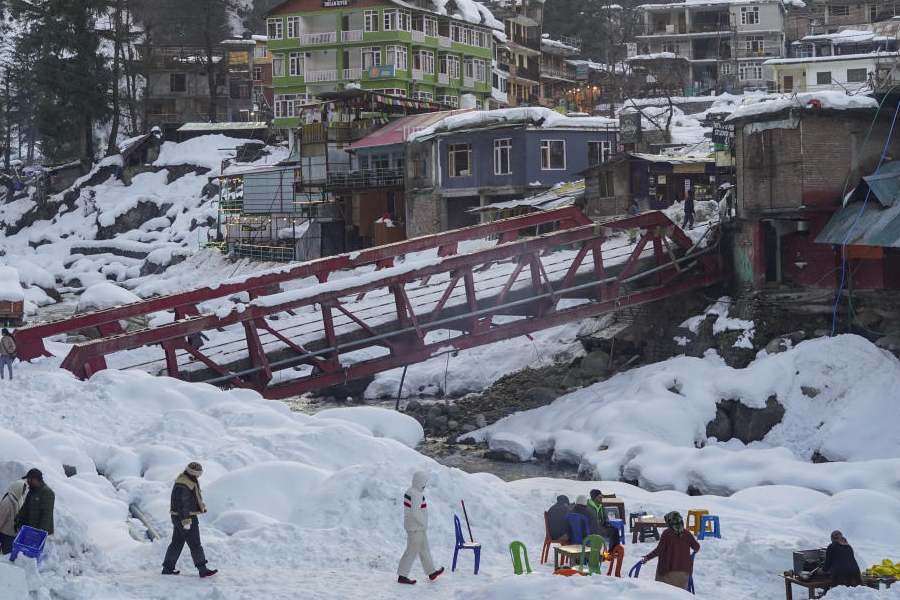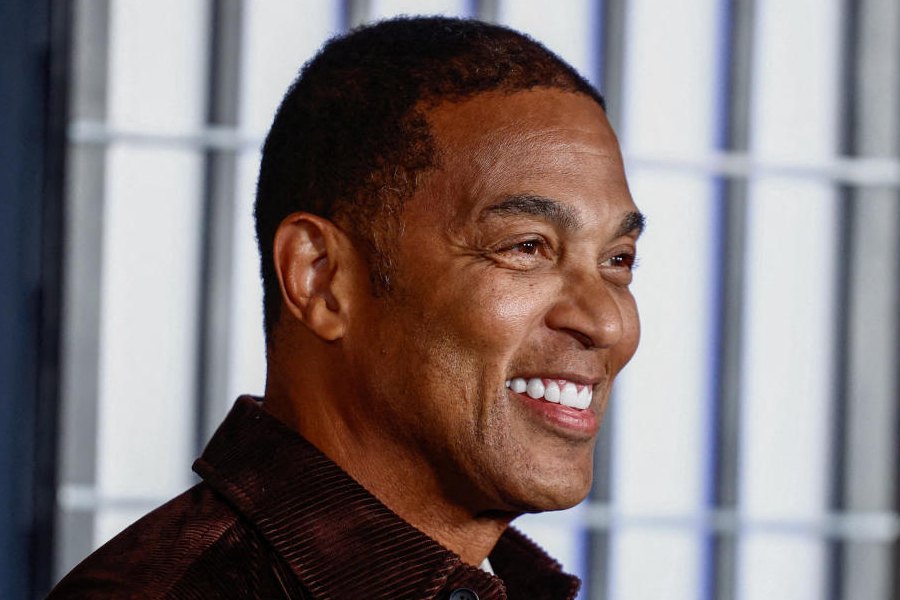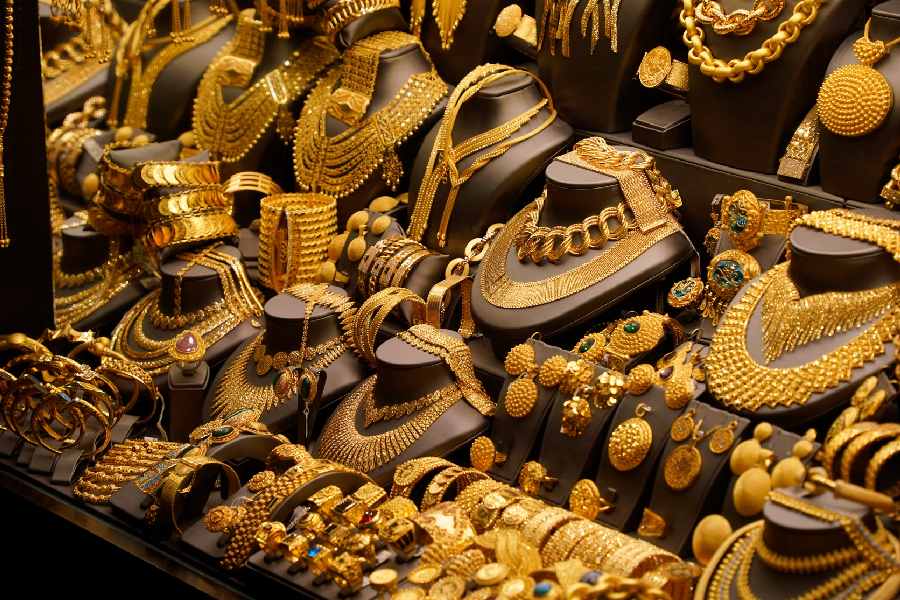 |
Did someone say that the Indian rock scene is dead? That rock bands can?t sell albums and no one is interested in their music? The times are a changing now and top Indian acts are busier than ever ? and with the advent of winter, they?re moving from one gig to another performing nonstop.
For the next six months, outfits like Parikrama, Zero, Pentagram and Orange Street will be playing across the length and breadth of the country. They?ll be jetsetting from college fests to corporate events, from Delhi, Bangalore and Mumbai to Ahmedabad. Says Parikrama band member Subir Malik, ?We?re booked solid till February.?
Parikrama, for instance, will be strumming its way round the college circuit and performing at places like Indraprastha College (Delhi), IIM (Bangalore), IIT (Mumbai) and Nirma University (Ahmedabad). Meanwhile, Orange Street is busy performing at five star hotel pubs like The Capitol in Delhi.
The music?s playing just as loudly for Zero, a Mumbai-based group performing at IIT Mumbai, IIT Kharagpur and Delhi?s Lady Shri Ram College in the coming months. The band will also be playing for the number-crunchers at the ICFAI. In recent months, it has even played at corporate events organised by companies like Seagrams and Levi?s.
Some bands have even made it to foreign shores. Orange Street, for instance, has just returned after a successful tour that took them to Estonia, Norway, Sweden and the UK. Exults lead vocalist Anirban Chakraborty, ?On this tour, we played with legends like Motorhead, Timbuktu and Trilok Gurtu.?
Orange Street reckons the tour was a hit in more ways than one. Not only did it perform along with internationally recognised names, it also made sure that its special individualistic sound was heard loud and clear ? with rock guitars and Indian percussion (the sounds of the dholak and dhupli). And the band is heading off once again on a Scandinavian tour scheduled for June 2005.
International tours are for top-flight musicmen who?ve made a name for themselves. Mumbai-based rock band Pentagram was the first Indian outfit to play at the Estonia Rock Festival. When it played in Seychelles in the ?90s, it followed in the footsteps of the world famous UB40. Now it?s gearing up for a Canadian tour in the summer of 2005.
But there are plenty of other ways to keep busy ? and make sure the moolah keeps rolling in. Take a look at Pentagram, which has been performing for a decade. Recently, the group did the score for Battledust, a 3D game created for Reliance mobile users besides playing at fashion shows. Says band leader Vishal Dadlani, ?The days of doing covers are over. The rock industry is doing really well and there?s a lot of good songwriting happening. Last year in Mumbai itself, 13 bands released their albums which I think is unprecedented.?
Who are the top music-makers of Indian rock? In Delhi, there are groups like Euphoria, Indian Ocean, Parikrama and Orange Street. In Mumbai, there are other popular acts like Pentagram, Zero, Pin Drop Violence (PDV) and Metakick. And Calcutta has good old Bangla rock bands like Cactus, Lakkhichhara, Hip Pocket and Chandrabindoo.
Other newcomers are also making their way into the big league of Indian rock. There are groups like Septa, Groovelab and Split in Mumbai who are attracting a fair share of attention.
Once upon a time, even the topmost rock bands would have had a tough time eking out a living on the tour circuit. They would barely have picked up travelling expenses by playing at live shows.
But now they get good money even at college shows. Bands like Pentagram which are regulars at college fests earn about Rs 1 lakh to Rs 2 lakh per show while even lesser names pick up around Rs 90,000. In Calcutta the pickings are slimmer ? Rs 50,000 to Rs 60,000, not much incentive for Delhi and Mumbai bands. The money flows in from companies like Pepsi and Coke, which over the past few years, have been sinking big bucks into top student festivals.
Even bigger moneyspinners are corporate gigs where the bands play for about an hour and charge Rs 2 lakh. For longer sessions, especially at Christmas and New Year, they can usually send out bills for between Rs 4 lakh and Rs 5 lakh. ?Christmas to New Year is the most happening time for such gigs,? says Dadlani.
Some bands are choosier than others. Pentagram doesn?t play at places where ?people are not serious and more interested in eating and drinking?. So they steer clear of pubs and hotels unless there?s a special rock show. Says Dadlani, ?We do a lot of Channel [V] roadshows and even performed at the MTV Lycra Style Awards this year.?
Most bands play their own compositions at live shows. That?s how bands like Parikrama, Orange Street, Chandrabindoo, Cactus and Zero have built up a following over the years. Occasionally, they also play popular global megahits but not too much of these.
In some ways, these rock bands seem to have turned the music industry on its head. Abroad, bands usually get the bulk of their earnings from recordings. But here in India, sales aren?t really taking off, though, the bands pull in good crowds at live shows. Says Rahul Ram of fusion band Indian Ocean, ?Live shows are the only reason we?re there. The money from such shows is any day better than what we earn from our albums.?
Indian Ocean still remembers how it cut its first album in 1993 and then watched it fizzle out, selling barely 45,000 copies. The problem was that the record company wasn?t willing to spend heavily on promoting the album.
Most groups still have their grouses with the music companies. But they also point out that technology has now advanced so much that it?s possible to start your own label and get an album recorded. Says Dadlani, ?If you feel the record companies are out to fleece you, you can start your own label.? Pentagram has, in fact, done just that recently, recording a score with singer Shankar Mahadevan for a TV show.
The groups have also found other ways of promoting their music. Instead of trying to sell in music stores, they ensure that CDs and cassettes are on sale at concerts. ?Bands like Pentagram for whom we have recorded albums usually retail their cassettes or CDs through their own gigs,? says Arjun Sankalia, marketing manager, Sony Music.
Where do the music companies come into the picture for Indian rock bands? The fact is that rock is not a big cash generator like Hindi film music. But there are rock ?? roll lovers like Sridhar, the head of Sony Music in India and Mohan Mahapatra of Virgin Asia who never think twice about promoting rock music. Vijay Nair, manager for bands like Pentagram, PDV and Zero teamed up with Dadlani to come up with their own label, ?Only Much Louder?. Sony Music made a 10-album-a-year deal with the duo whereby they put the music together and the company takes care of the album production and distribution.
Says Anirban Chakraborty, lead singer of Orange Street, ?While we might sell about 5,000 copies, an Adnan Sami would sell about 500,000.? Sam Eric Lal, executive editor of Rock Street Journal, which also releases albums, says that the albums are complimentary with editions. He explains that rock music the world over has always been secondary when it comes to viability. ?If you compare a Madonna and an ?Sync to Aerosmith and Queen, the conclusion is obvious. In India too, Euphoria vis-a-vis Pentagram would any day sell more.?
Unlike bands like Pentagram and Zero who are open to all kinds of shows except wedding gigs, there are those like Indian Ocean who do not do corporate shows. ?That?s not the kind of audience we are looking at. We love the enthusiasm and verve of the youth,? says Ram. In fact, none of the bands perform at weddings. ?We play a totally different kind of music which would possibly not work with the ambience at weddings,? says Siddharth, the drummer of Zero.
Inevitably, rock has had a tough time because of the predominance of electronic music, as well as the emergence of strains like grunge rock and hip-hop. The aggressive promotion of Indipop and bhangra through music channels has also made inroads into rock audiences. But the groups insist they have a reasonably sized and extremely loyal audience. ?Our audiences are a totally different set. All you see nowadays are those mindless music videos that are played on MTV with pieces of cabaret thrown in for good measure,? says Parikrama?s Malik scathingly.
Some feel that rock will never thrive in this country. Hindrock band Euphoria suffered a lack of recognition initially because of the language barrier. Says lead singer Palash Sen, ?I began thinking, what label wants to sign up brown-skinned boys playing an alien music in an alien language? What?s so outstanding about our music that 5,644,233,432.5 bands haven?t already done?? That?s when Euphoria underwent an image makeover with the aim: ?Do it in Hindi ? get to the common listener?.
The biggest example of the success of vernacular rock bands would be Bangla bands like Cactus and Chandrabindoo. College fests and even pubs go all out to hire these bands. Besides the fact that they are not very expensive, the music itself, with touches of Western rock, is a big hit among the youth.
It?s been a long journey from the early ?70s when groups like Atomic Forest regaled audiences in Bangalore and Delhi with their own unique sounds. In those days, anyone who joined a band would have looked forward to a penurious existence as a musician. But today musically-minded youngsters know that it?s possible to strum your stuff ? and make money doing it.
Rock Street Journal
• Delhi-based Rock Street Journal (RSJ) has infused life into a small and struggling rock community in the country.
• Started by editor Amit Saigal and executive editor Sam Eric Lal in 1993, it has been promoting a hardcore and ‘purely desi’ strain of rock.
• Amit and Sam performed in a band called Impact. While they were at it, they realised that there were no support systems for rock bands during the 90s. College fests were the sole platforms.
• Sam says: “The community was large and strong but very fragmented at the same time. When we thought about this, we decided to come up with RSJ which would provide news about rock music anywhere in the country”
• RSJ’s annual Great Indian Rock Festival promotes Indian bands abroad. It started off in 1997 with its Calcutta show.

